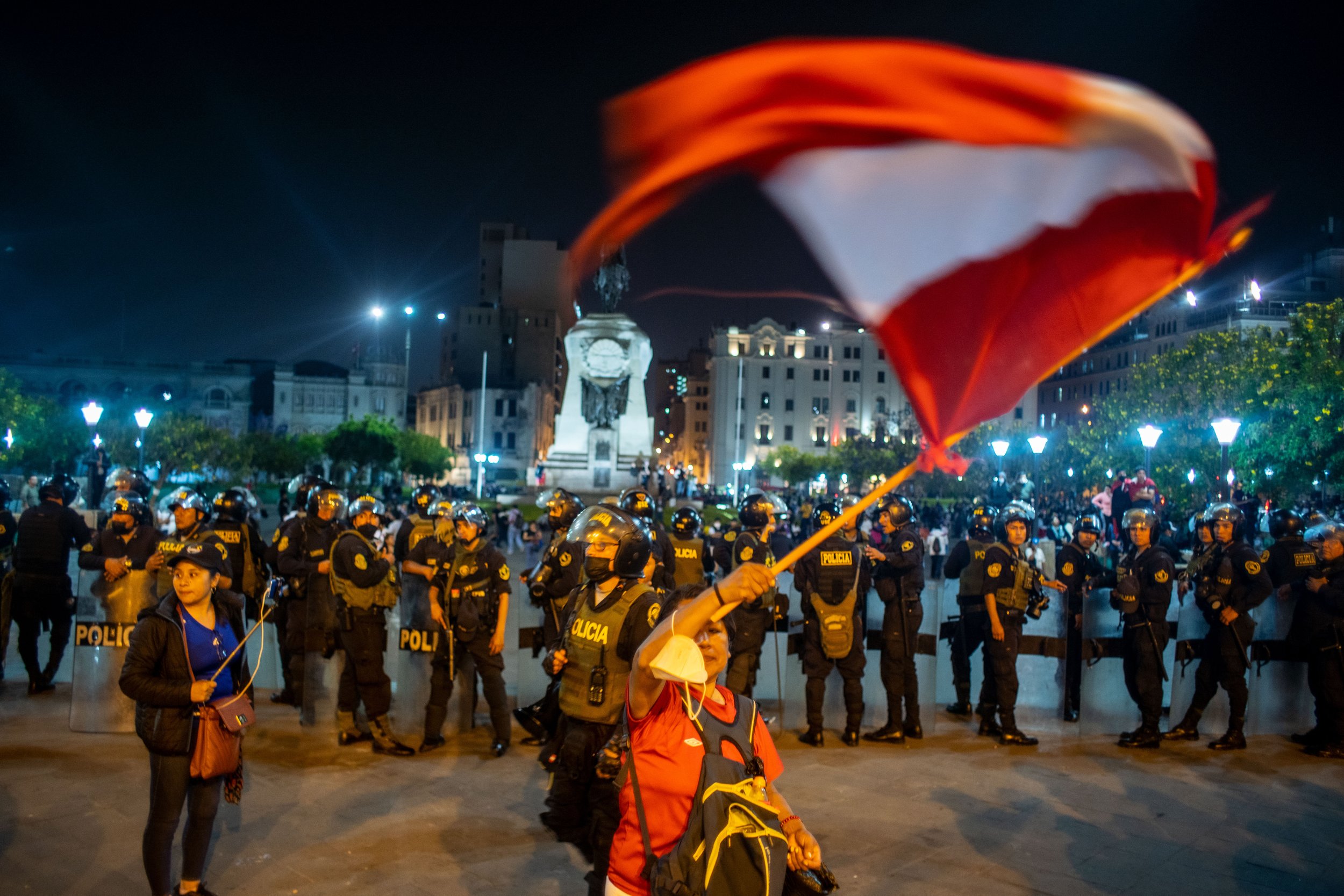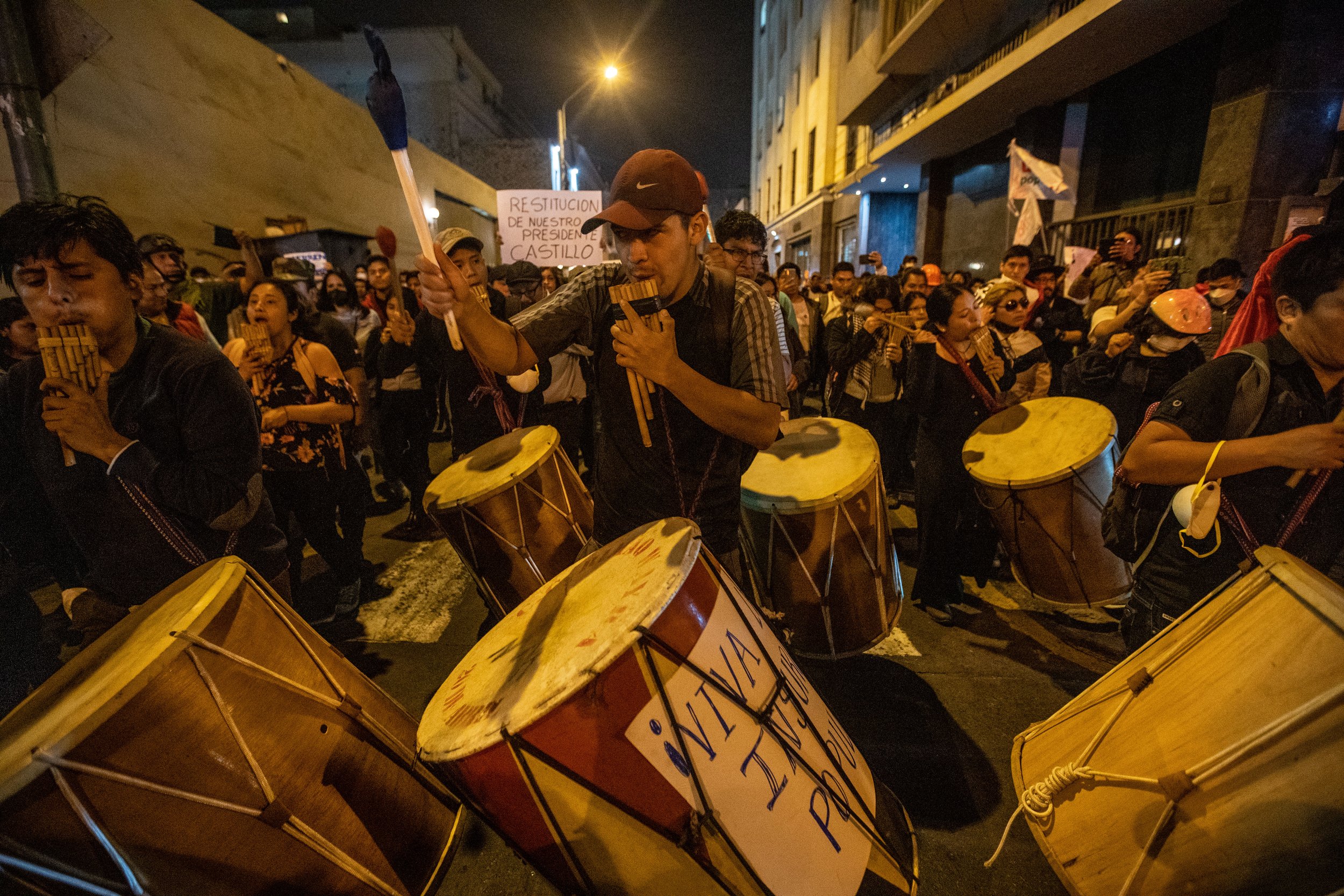The Treaty network stands in solidarity with the Peruvian people
“The political crisis in the country is another consequence of the colonial heritage that sustains extractive predatory economies until this date.”
Protests in Lima, January 2023. © Marlon Florest
Since December 2022 and the destitution of President Pedro Castillo, Peru has been facing a political crisis and an unprecedented escalation of violence that has resulted in the deaths of more than 60 protesters. The repressive acts of the police, employed by the civil-military dictatorship of President Dina Boluarte, are only comparable to those deployed during the internal conflict of the 1980s and 1990s.
Our allies from MOCICC (Movimiento Ciudadano frente al Cambio Climático del Perú), focal point of the Fossil Fuel Non-Proliferation Treaty campaign in Latin America, alert us daily to the increasing number of deaths and injuries, as well as the arrests of activists and social leaders allegedly accused of "terrorism".
Augusto Durán, coordinator of the campaign for a Fossil Fuels Non-Proliferation Treaty at MOCICC, declared: "The rhetorical tactics used to delegitimise social demands and the level of violence with which the government responds to people's demands are reminiscent of the darkest hours in our country's history. The political crisis is another consequence of the colonial heritage that sustains extractive predatory economies until this date. What is being demanded is the urgent need for social justice and for the voice of the regions to be heard. The violent repression requires the mobilization of the international community to avoid that, once again, the most vulnerable are the ones who pay the price of institutional colonialism."
The Treaty initiative stands in solidarity with our partners and the Peruvian people, respects and supports the sovereignty of indigenous peoples, and condemns the stigmatization and criminalization of protesters, who are exercising their right to free public demonstration, and whose demands go far beyond the institutional political framework.
Protests in Lima, January 2023. © Marlon Florest
What is at stake is the continuity of the struggle against an extractivist model that has only increased inequalities, and addressing these demands is fundamental for the construction of a just future in Peru and in so many other countries.
Abuses of human, civic and traditional population rights go hand in hand with the abusive exploitation of natural resources that ultimately generate the climate crisis we are experiencing in all corners of the globe. The political acts seen in Peru now are representative of what happens when power is centralized in the hands of retrograde elites. This is what an extractive, fossil fuel dependent economic system brings to the population. Only a system based on social and climate justice can repair the traces of the colonial heritage that befall the Peruvian people.
To understand what is happening in Peru, it is necessary to listen to the voices of those who have been fighting for years against governments and the lobby of big corporations that have imposed land grabbing, resource exploitation, accumulation of power and racism as the structural bases of their economies. The indigenous leader Lourdes Huanca was recently in Europe to alert the international community about the Peruvian situation and she reaffirmed her political reading of the crisis: "This is a coup d'état against indigenous peoples.
Henry Cordova, Director of MOCICC, states: "30 years of savage neoliberalism established by the Constitution of the Fujimori dictatorship have allowed the national elites and the private sector to impose on the Andean and Amazonian indigenous peoples the systematic plundering of their territories and resources, be they minerals, oil or gas. The racist and classist elite centralized in Lima is once again using violence to maintain the economic pattern that ensures their profits and power."
As an international network mobilized for a just transition away from fossil fuel dependency and the violence and racism that sustain it, we stand in solidarity with our allies and with the Peruvian people in their democratic demands for the removal of the current President, anticipated elections, the renewal of Congress and a new Constitution. It is urgent to recognize the plurinational character of the Peruvian nation and to establish an equitable distribution of wealth that benefits the entire population, starting with the indigenous peoples for whom it is high time to obtain justice, reparations and inclusion.
Instead of responding with bullets that only instill fear and foment anger, the Peruvian government should take advantage of the nation’s diversity in order to build an equally diverse economy that benefits the people all over the country.

